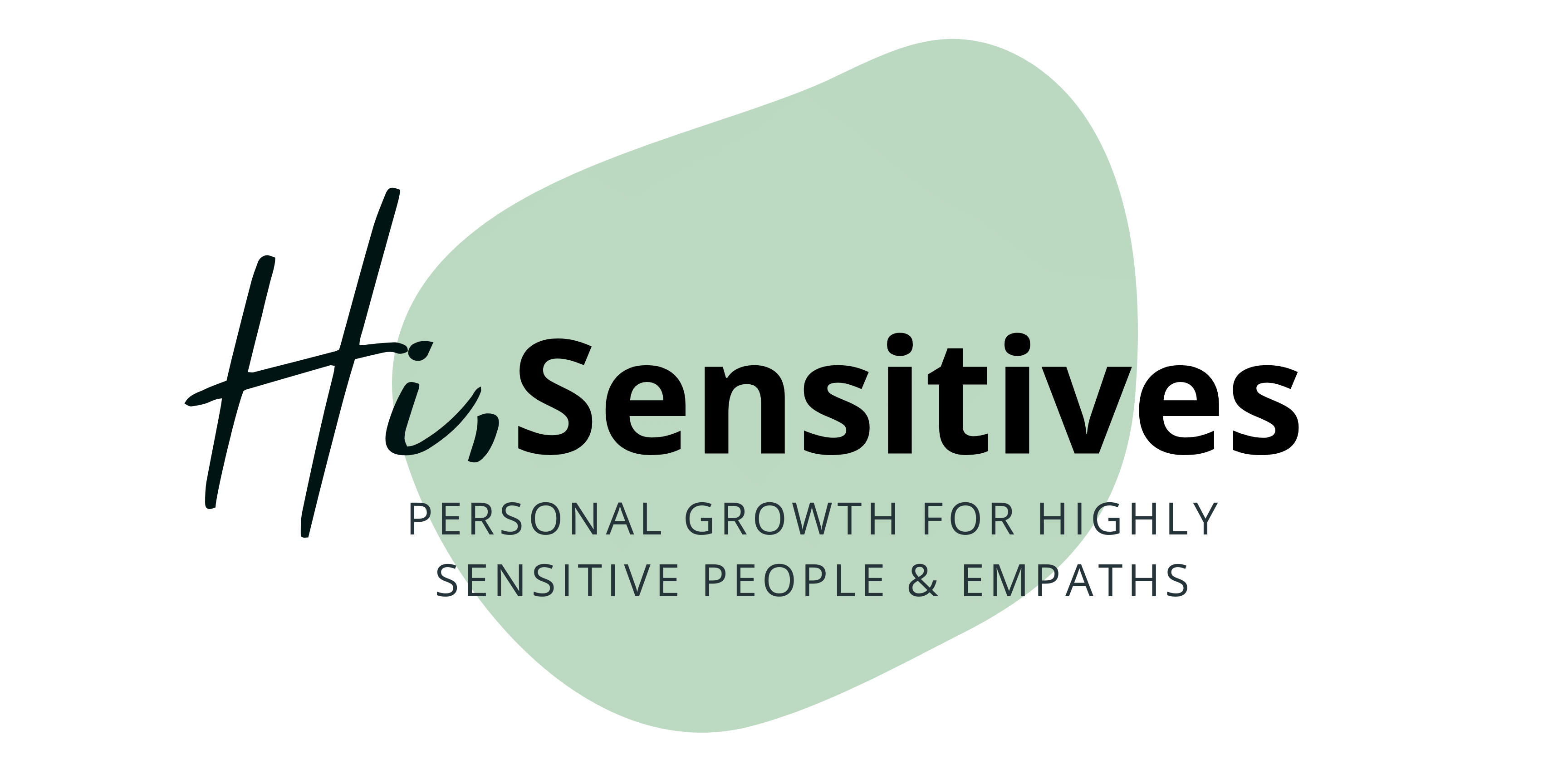Do you struggle with overstimulated senses and experience sensory overload? You might be a highly sensitive person and want to try out these methods.
Hey there, lovely readers! We want to be completely transparent with you. Some of the links in this blog are affiliate links, which means if you click on them and make a purchase, we may earn a small commission at no additional cost to you. 😊
We only recommend products and services we genuinely believe in and have personally used or researched. Your support through these links helps us keep bringing you valuable content, so thank you for being amazing!
Estimated reading time: 5 minutes
- Burned out
- Exhausted
- Overwhelmed
- Easily annoyed by your surroundings
- Out of balance
Does this describe you? You might struggle from sensory overload. Highly sensitive people are more prone towards external stimuli. As a result, they feel more easily overwhelmed by their surroundings. In this article, we’ll dive into sensory overload and how you can deal with it.
What Is Sensory Overload?
Sensory overload, or sensory overwhelm, is a term that most highly sensitive people are familiar with.
As the amygdala, the part of the brain responsible for memory, decision-making and emotional reactions, is more active within highly sensitive people, they are more prone to sensory overload. You could compare it to an alarm system that is incredibly sensitive and reacts to every tiny movement in the house.
Therefore, on days where a HSP has much on their plate and interacts in a busy environment, sensory overwhelm often is a result. Their brain registered all the input and now needs time to progress it.
What Happens When You Keep Pushing Yourself?
If you neglect the signals your body is sending out and continue overstimulating your amygdala every single day, you might face the following consequences:
- Increased anxiety, as the amygdala is responsible for feeling anxious;
- You will feel more stressed, as your anxiety triggers your fight-flight-freeze-mode more frequently;
- Exhaustion: your brain needs a break every now and then;
- Overthinking and worrying.
As you can see, the consequences of not taking care of yourself are serious. Therefore, break this pattern and start taking care of yourself by implementing these techniques against sensory overload:
Ways To Tackle Sensory Overload
There are many ways to tackle sensory overload. Below, you will find proven activities that help you to decrease the overwhelm and get back to your happy place.
1. Withdraw From The Situation
If you find yourself in a situation where you are incredibly overstimulated, do one thing: WITHDRAW!
It is easier said than done, as we often have obligations that we need to attend. However, the best thing you can do when you feel overwhelmed, is to clear your schedule. Look at everything that is not obligatory (work etc.) and reschedule those appointments. Preferably, even take a few days off to retreat.
Since you are reading this article, it is likely that you have been pushing yourself for far too long. Therefore, take the upcoming days or weeks to retreat. Invest time in self-care and do things that give you energy.
2. Meditation
One of the best ways to tackle sensory overload, is to meditate. Many people underestimate the power of meditation. However, this technique offers a great set of benefits.
Meditation:
- Decreases stress;
- Reduces anxiety;
- Increases self-awareness;
- Improves your attention span;
- Generates kindness;
- Improves your sleep;
- Decreases pain.
As you can see, this long list of benefits can be useful when it comes to decreasing sensory overload. As sensory overload often goes hand in hand with anxiety and stress, meditation is a wonderful method to reduce these symptoms. In fact, research has shown that meditation reduces amygdala activity. Consequently, it can help you to become more resistant against becoming overwhelmed in the future.
Would you like to learn more about how to meditate? You might want to have a look at Real Happiness: The Power of Meditation – A 28 day program.
3. Create Rituals
Not rituals in a spiritual sense, but rituals in the form of daily habits for your well-being. Most of us go through our days, doing everything that we need to do, but not investing time in things that are good for our well-being. Therefore, it is wise to consciously make time every day to have fun.
In this blog, you can read more about the power of rituals. For example, you could try to create an effective morning routine. Start your day off with the right energy, so that nothing can knock you off your feet!
If you’d like to read more about powerful morning rituals, you might want to read ‘The Miracle Morning: The Not-So-Obvious Secret Guaranteed to Transform Your Life (Before 8AM)‘
4. Invest In A Good Set Of Ear Buds
You might be surprised how many manmade noises you unconsciously are dealing with throughout the day. Highly sensitive people register the tiniest sound and their brain has to process all this input in the evening. No wonder you struggle with sensory overload, right?
However, there are ways to reduce the noises from the outside world. Did you know that there are specific ear buds that reduce the noise from the outside world? If you are noise-sensitive, this will change your life! Why not try these wireless, industry-leading noise-canceling earbuds?
5. Walk In Nature
Highly sensitive people truly recharge in nature. Therefore, once you feel overwhelmed and like your senses have been overstimulated, retreat into nature. In the calm of nature, focus on your breathing. Try this breathing exercise:
- Breathe in for 4 seconds
- Hold your breath for 2 seconds
- Breathe out for 4 seconds
Repeat this until you feel more calm. Preferably, do this exercise while sitting on a bench and listening to the sounds of nature. Inner peace guaranteed!
If These Activities Don’t Work For You…
…try to find an activity that provides you with peace and fun. In the end, fun and pleasure are the key to a happy mind. Therefore, if you feel more comfortable with a different activity, try to do that when you feel overstimulated.
Maintenance Is The Key To Less Sensory Overload
If you want to avoid feeling overwhelmed in the future, the best way to do so is to take care of yourself and your need for recharging every single day. When you listen to the boundaries of your body and act upon them, you are much less likely to get yourself into a situation of overwhelm in first place. Therefore, maintenance through self-care is the key to avoid sensory overload in the future.
Good luck with trying these techniques!
Join Our Personal Growth Community
Do you want to invest more time in your personal growth?
Would you like to do that with likeminded people?
HiSensitives Community is a personal growth Facebook-community for highly sensitive people and empaths. Through fun challenges, a close community and a book club, you can invest in your personal growth in a fun, casual and (of course) free way!






